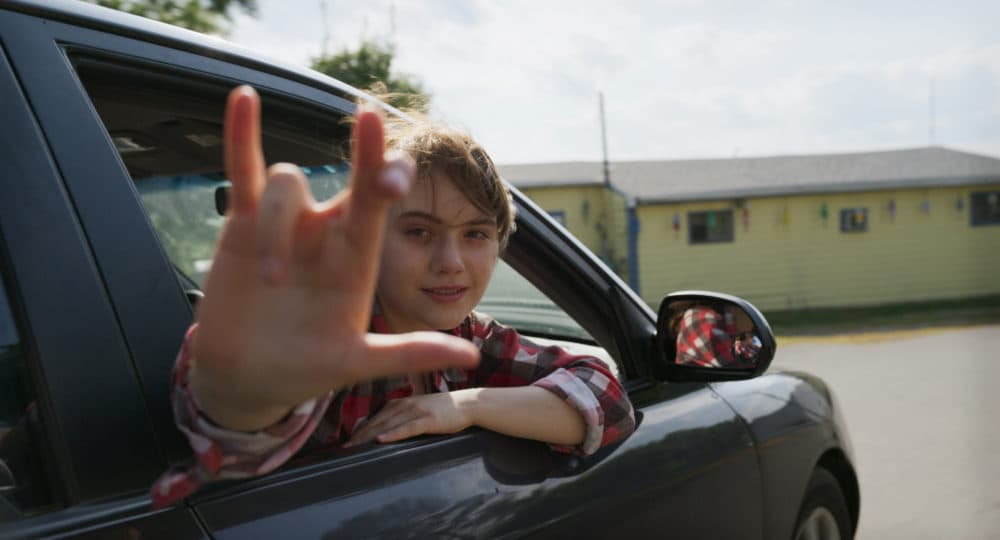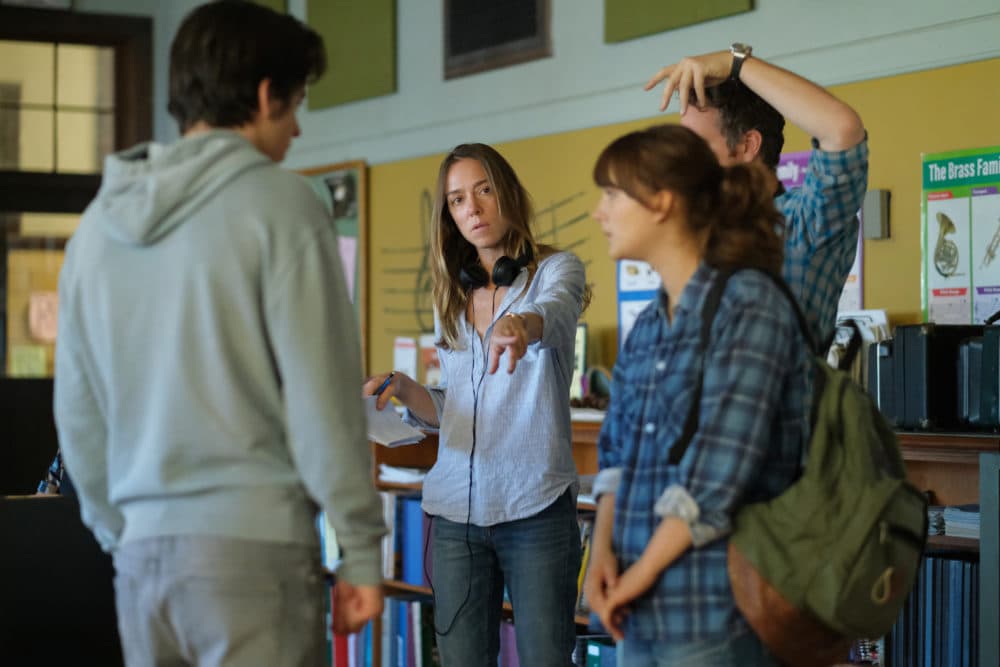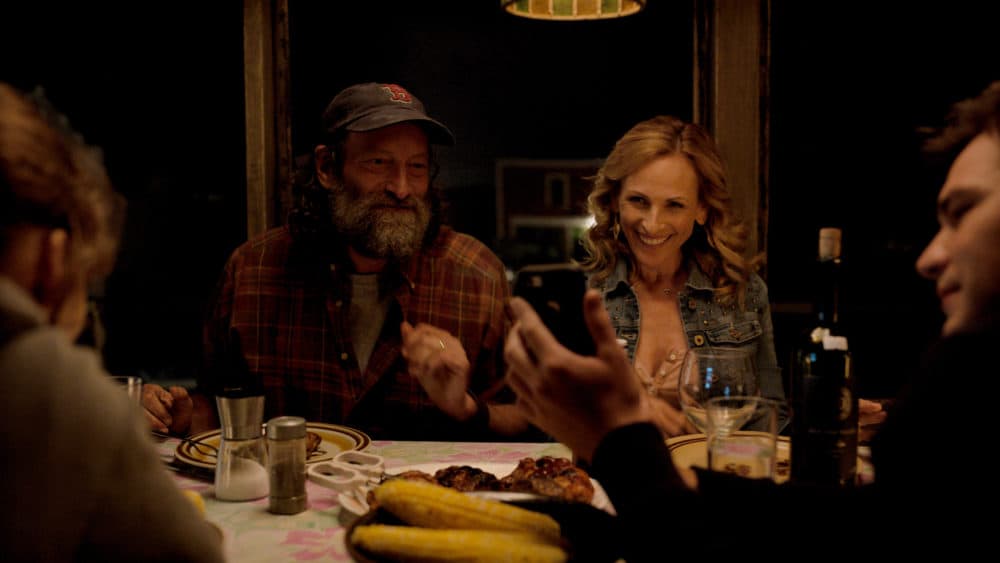Advertisement
Writer-director Siân Heder returned to her roots to make Oscar-winning film ‘CODA’
Resume
Editor's note: This segment was rebroadcast on Feb. 21, 2022. Click here for that audio. Apple Original Films is re-releasing “CODA” in theaters for free in major cities across the U.S. starting Feb. 25 through Feb. 27. Click here for more details.
The movie “CODA” — ‘Child of Deaf Adults’ — premieres this Friday in theatres.
Directed by Siân Heder, the film is about a culturally deaf family who runs a fishing business in Gloucester, Massachusetts. High schooler Ruby, the only hearing member of the family, is torn between following her passion of singing and helping her loved ones.
“CODA does have a double meaning in the title because it’s Children of Deaf Adults, but it’s also the end of a piece of music, '' Heder says. “It’s a story about the end of childhood.”
At the end of the movie, Ruby singing Joni Mitchell’s “Both Sides, Now” on stage represents a turning point in her life, figuring out her identity outside her deaf culture.
“That’s what the movie is about,” Heder says, “it’s like once you remove yourself from your comfort zone of your identity within the people you love — how do you find your own voice?”

Teenage Ruby feels trapped by her family and responsibilities, Heder says, but she also gets a lot of self-worth from her role as an interpreter. The CODAs Heder spoke to when creating this film all reported feeling a sense of importance.
CODAs grow up in a deaf culture where American Sign Language (ASL) could be their first language, Heder says.
“[CODAs] oftentimes feel more connected to deaf culture than to hearing culture,'' she says, “and there's this strange limbo that they exist in where they're a part of both worlds, but also a part of neither.”
She says film producer Jack Jason, a long-time interpreter to deaf actress Marlee Matlin, described his childhood as being “an electrical wire”— a conduit delivering information between these two points. He felt that he didn’t exist or know exactly who he was, Heder says.
When creating the movie, Heder says she was looking to hire interpreters when someone on set recommended a CODA named Heather Rossi. Rossi had the same last name as the characters in the movie and was the daughter of a deaf fisherman — a moment Heder referred to as “movie magic.”
“He had a boat that he named Deaf Boater,” Heder says. “ The reason he named it Deaf Boater is if he ever had an encounter with the Coast Guard, [they] would see the name of the boat and know that in a boarding situation, he might not be responding.”
In one scene, the father and son go out to the boat without Ruby and get radioed in by the harbourmaster, who is trying to get their attention. They don’t hear the radio and the situation builds up to a gripping scene.
As tension grows, the father and son are unaware of what’s happening. Heder says she wanted the scene to address what happens when deaf people encounter law enforcement. Officers often lack proper training to communicate with someone who is deaf, she says.
“When [officers] see someone not responding or not following directions,” Heder says, “it can go to a really bad place — it can escalate very quickly.”

Heder hopes the film normalizes deaf families and feels universal. The family in the movie is a hilarious, weird, quirky bunch who also have fights and laughs, she says.
“Hopefully people will watch this family and just feel like ‘oh this feels like my family’ and that the difference is they’re deaf but they're not other in any other way,” she says.
Bringing “CODA” to life has been a gift, Heder says. Even if the film was never released, she says it would have still been a complete experience for her.
“The friends that I've made, the relationships that I have,” Heder says. “We were telling the story about a family — we became a family making the film.”
Emiko Tamagawa produced this interview and edited it for broadcast with Todd Mundt. Camila Beiner adapted this interview for the web, and transcribed the extended version with Xcaret Nuñez.
Full Transcript Of Host Robin Young's Conversation With Director Siân Heder
More from WBUR
This article was originally published on August 11, 2021.
This segment aired on August 11, 2021.
